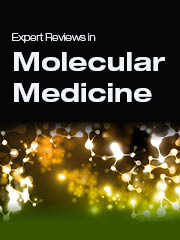Crossref Citations
This article has been cited by the following publications. This list is generated based on data provided by
Crossref.
Stewart, Trina J.
and
Abrams, Scott I.
2007.
Altered Immune Function during Long-Term Host-Tumor Interactions Can Be Modulated to Retard Autochthonous Neoplastic Growth.
The Journal of Immunology,
Vol. 179,
Issue. 5,
p.
2851.
Giles, Francis J
and
Albitar, Maher
2007.
Plasma-based testing as a new paradigm for clinical testing in hematologic diseases.
Expert Review of Molecular Diagnostics,
Vol. 7,
Issue. 5,
p.
615.
Stewart, Trina J.
Christine Lutsiak, M. E.
and
Abrams, Scott I.
2008.
Immune Consequences of Protracted Host-Tumor Interactions in a Transgenic Mouse Model of Mammary Carcinoma.
Cancer Investigation,
Vol. 26,
Issue. 3,
p.
237.
Janicki, Claire N.
Jenkinson, S. Rhiannon
Williams, Neil A.
and
Morgan, David J.
2008.
Loss of CTL Function among High-Avidity Tumor-Specific CD8+ T Cells following Tumor Infiltration.
Cancer Research,
Vol. 68,
Issue. 8,
p.
2993.
Stewart, T J
and
Abrams, S I
2008.
How tumours escape mass destruction.
Oncogene,
Vol. 27,
Issue. 45,
p.
5894.
Baronzio, Gianfranco
and
Freitas, Isabel
2008.
Atlas Effectors of Anti-Tumor Immunity.
p.
25.
Baronzio, Gianfranco
Freitas, Isabel
Fiorentini, Giammaria
Crugnola, Anna Rita
Hager, Dieter
Ceppodomo, Dino
and
Kiselevsky, Mikhail V.
2009.
Cancer Microenvironment and Therapeutic Implications.
p.
157.
Stewart, Trina J.
Greeneltch, Kristy M.
Reid, Julia E.
Liewehr, David J.
Steinberg, Seth M.
Liu, Kebin
and
Abrams, Scott I.
2009.
Interferon regulatory factor‐8 modulates the development of tumour‐induced CD11b+Gr‐1+ myeloid cells.
Journal of Cellular and Molecular Medicine,
Vol. 13,
Issue. 9b,
p.
3939.
Ridolfi, Laura
and
Ridolfi, Ruggero
2009.
Anti-CTLA-4 therapy in melanoma: role of ipilimumab (MDX-010).
Expert Review of Dermatology,
Vol. 4,
Issue. 3,
p.
199.
Stewart, Trina J
and
Smyth, Mark J
2009.
Chemokine–chemokine receptors in cancer immunotherapy.
Immunotherapy,
Vol. 1,
Issue. 1,
p.
109.
Sreedhar, Amere Subbarao
2010.
Hsp70 confines tumor progression of rat histiocytoma and impedes the cytotoxicity induced by natural killer cells and peritoneal macrophages.
Asian Pacific Journal of Tropical Medicine,
Vol. 3,
Issue. 4,
p.
302.
Pless, Miklos
and
Weinberg, Uri
2011.
Tumor treating fields: concept, evidence and future.
Expert Opinion on Investigational Drugs,
Vol. 20,
Issue. 8,
p.
1099.
Stewart, Trina J.
and
Smyth, Mark J.
2011.
Improving cancer immunotherapy by targeting tumor-induced immune suppression.
Cancer and Metastasis Reviews,
Vol. 30,
Issue. 1,
p.
125.
Hanlon, Douglas J.
Aldo, Paulomi B.
Devine, Lesley
Alvero, Ayesha B.
Engberg, Anna K.
Edelson, Richard
and
Mor, Gil
2011.
Enhanced Stimulation of Anti-Ovarian Cancer CD8+ T Cells by Dendritic Cells Loaded with Nanoparticle Encapsulated Tumor Antigen.
American Journal of Reproductive Immunology,
Vol. 65,
Issue. 6,
p.
597.
Judy, Brendan F.
Aliperti, Louis A.
Predina, Jarrod D.
Levine, Daniel
Kapoor, Veena
Thorpe, Philip E.
Albelda, Steven M.
and
Singhal, Sunil
2012.
Vascular Endothelial-Targeted Therapy Combined with Cytotoxic Chemotherapy Induces Inflammatory Intratumoral Infiltrates and Inhibits Tumor Relapses after Surgery.
Neoplasia,
Vol. 14,
Issue. 4,
p.
352.
Kim, So-Jung
Ha, Ga-Hee
Kim, Sun-Hee
and
Kang, Chi-Dug
2014.
Combination of cancer immunotherapy with clinically available drugs that can block immunosuppressive cells.
Immunological Investigations,
Vol. 43,
Issue. 6,
p.
517.
Weir, Chris
Hudson, Amanda L.
Moon, Elizabeth
Ross, Angus
Alexander, Miles
Peters, Lyndsay
Langova, Veronika
Clarke, Stephen J.
Pavlakis, Nick
Davey, Ross
and
Howell, Viive M.
2014.
Streptavidin: A Novel Immunostimulant for the Selection and Delivery of Autologous and Syngeneic Tumor Vaccines.
Cancer Immunology Research,
Vol. 2,
Issue. 5,
p.
469.
Hong, Hye-Jin
Lim, Hui Xuan
Song, Ju Han
Lee, Arim
Kim, Eugene
Cho, Daeho
Cohen, Edward P.
and
Kim, Tae Sung
2016.
Aminoacyl-tRNA synthetase-interacting multifunctional protein 1 suppresses tumor growth in breast cancer-bearing mice by negatively regulating myeloid-derived suppressor cell functions.
Cancer Immunology, Immunotherapy,
Vol. 65,
Issue. 1,
p.
61.
Bernal, Mónica
Aptsiauri, Natalia
Otero, María
Concha, Ángel
Garrido, Federico
and
Ruíz-Cabello, Francisco
2022.
Foundations of Colorectal Cancer.
p.
529.




